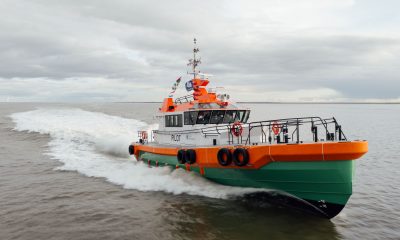News
Sea Empress disaster 20 years on
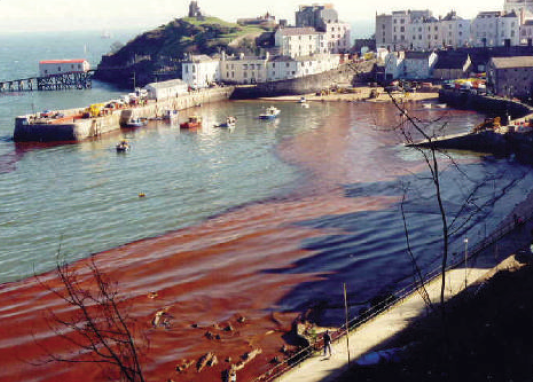
 IT WAS one of the biggest environmental disasters ever to hit UK shores and now 20 years on from the Sea Empress disaster RSPCA staff are looking back at the role they played in helping to save hundreds of seabirds and mammals.
IT WAS one of the biggest environmental disasters ever to hit UK shores and now 20 years on from the Sea Empress disaster RSPCA staff are looking back at the role they played in helping to save hundreds of seabirds and mammals.
Early on the evening of 15 February, 1996 the Sea Empress, a single hull oil tanker, hit rocks on its way into the Cleddau Estuary and the ship’s cargo of 130,000 tonnes of crude North Sea oil started to spill into the waters off Pembrokeshire.
The RSPCA launched a massive rescue operation in response to the disaster in an effort to save the thousands of oiled and dying seabirds that were so badly affected by the slick.
Scores of volunteers helped open and run a makeshift animal hospital – set up in an old industrial unit – where more than 7,000 dead or oiled birds were taken – while inspectors, drivers and wildlife centre staff experts worked around the clock to nurse, clean and feed as many of the birds back to health as they could.
“The rescue operation took a massive team effort,” said RSPCA chief inspector for the south west Wales inspectorate group, Romain de Kerckhove, who held the same position 20 years ago.
“It quickly became apparent that this incident was of a scale that needed national resources, and a roster was arranged that invited colleagues from all over England and Wales to become involved,” he said.
“Officers would attend, for a limited period, and would work extremely long days, responding to calls from the public, and patrolling beaches to search for victims of the disaster.
“They were accommodated locally, and would be replaced by other colleagues in order to keep the team fresh and strong. Some officers would actually sleep on camp beds at the temporary bird rescue holding/cleaning facility, in order to ensure that there were people on site overseeing the welfare of the birds 24/7.
“This was a rescue that involved teams from across the entire RSPCA, as well as countless volunteers who would work with us, and assist the RSPCA teams both at the cleaning and rehab centre, as well as on the beaches.
“It was hard work, but everyone enjoyed the atmosphere and being involved in such a worthwhile and much needed rescue operation.”
Richard Abbott, who is now an RSPCA chief inspector, was the officer on duty the night the Sea Empress ran aground. “I recall speaking to a Brecon RCC (Brecon Regional Control Centre) tasker who said they had received a call saying a tanker had run aground at Milford Haven and was leaking 30,000 gallons of oil.
I recall thinking, no chance, that’s never going to have happened, not these days with twin hulled tankers. I asked the tasker to ring the Coastguard to double check as I was driving and enroute to an emergency at the time, about 10.30pm ish.
“She rang me back about five minutes later and said to my astonishment that the Coastguard had confirmed the report. I pulled over and rang the chief inspector Romain de Kerckhove at home and started the response.
“I got back in about 1am that night and by 7am I had the call that I was needed to help set up the emergency response centre. A few hours later chief inspector Romain de Kerckhove arrived and took over.
“It was incredibly stressful for those three to four weeks, as we dealt with thousands birds and managed many rescue organisations. It was a steep learning curve.”
RSPCA inspector Rohan Barker attended the day after the incident with chief inspector Romain de Kerckhove.
“We spent two days putting together our response working with several organisations with very few birds coming in during the initial couple of days – but then the onslaught started.
“We worked 15 hour shifts collecting birds, setting up the cleaning station at a local industrial estate building provided by the council.
“Birds were collected by inspectors, animal collection officers and members of the public, brought to the station, initially cleaned and shipped off to RSPCA West Hatch Wildlife Centre by a fleet of vans.”
Dermot Murphy, who is now assistant director of inspectorate at the RSPCA, was one of the convoy of ambulance drivers drafted in from across the country at the time of the disaster to help ship stricken birds from the Pembrokeshire coast to the makeshift hospital.
“I was an RSPCA Ambulance Driver in London then, with just over a year’s service. I was sent to Milford Haven with an Inspector for a week.
“I had never seen anything like it. So many birds covered in oil in a terrible state, they were still being washed up two weeks into the operation. The birds that stuck in my mind were the common scoter, which is a sea duck. There were so many of them, an incredible amount and in such a bad way too.
“We had a busy week and did a range of duties, from collecting food to feed staff, patrolling beaches looking for oiled birds and cutting up food to feed the birds. It was a massive cleaning operation.”
Inside the RSPCA West Hatch Wildlife Centre in Somerset Paul Oaten was one of the team at the ready to take in casualties as they arrived in their droves from the Welsh coastline.
“We took in around 1,200 oiled birds. at the time of the Sea Empress disaster. They were covered in thick oil. Most of the casualties were scoters, and they were very badly affected.
“Luckily we had a lot of volunteers that came in to help with the sheer volume of birds that were coming in through the doors every day. People were happy to come in and wash towels while others spent their days cutting up sprats (fish) for the birds to eat.
“Those that were tasked with washing the birds would be in teams of two. One would hold the birds, the other would clean it using Fairy liquid. They would have a pre-clean where we would try to get as much of the oil off as possible without stressing the birds out. It was so important to get the oil off their plumage, not just because of the feathers but so that we could try to prevent them from ingesting the oil and stop it from burning them too.
“A lot of the birds were emaciated because they could not feed so building their strength back up and increasing their weight was also an important part of the process.”
He added: “Every role was vital to ensure we could keep the steady flow of birds through the cleaning system and the sense of teamwork was immense. That is my overwhelming memory of that time. the teamwork. It was so uplifting. The days were long and it was hard work but we were all working towards a common goal of trying to save these poor stricken birds.”
WWF-UK Head of Marine Policy Dr Lyndsey Dodds said told The Herald: “20 years on from the Sea Empress, Welsh waters are busier than ever but management is still piecemeal.
“The forthcoming Welsh National Marine Plan offers the opportunity to strategically manage activities that can impact upon Wales’s natural assets and should include provisions to ensure that the risks to the most sensitive areas from both accidental and chronic pollution are minimised.”
Business
First wind turbine components arrive as LNG project moves ahead
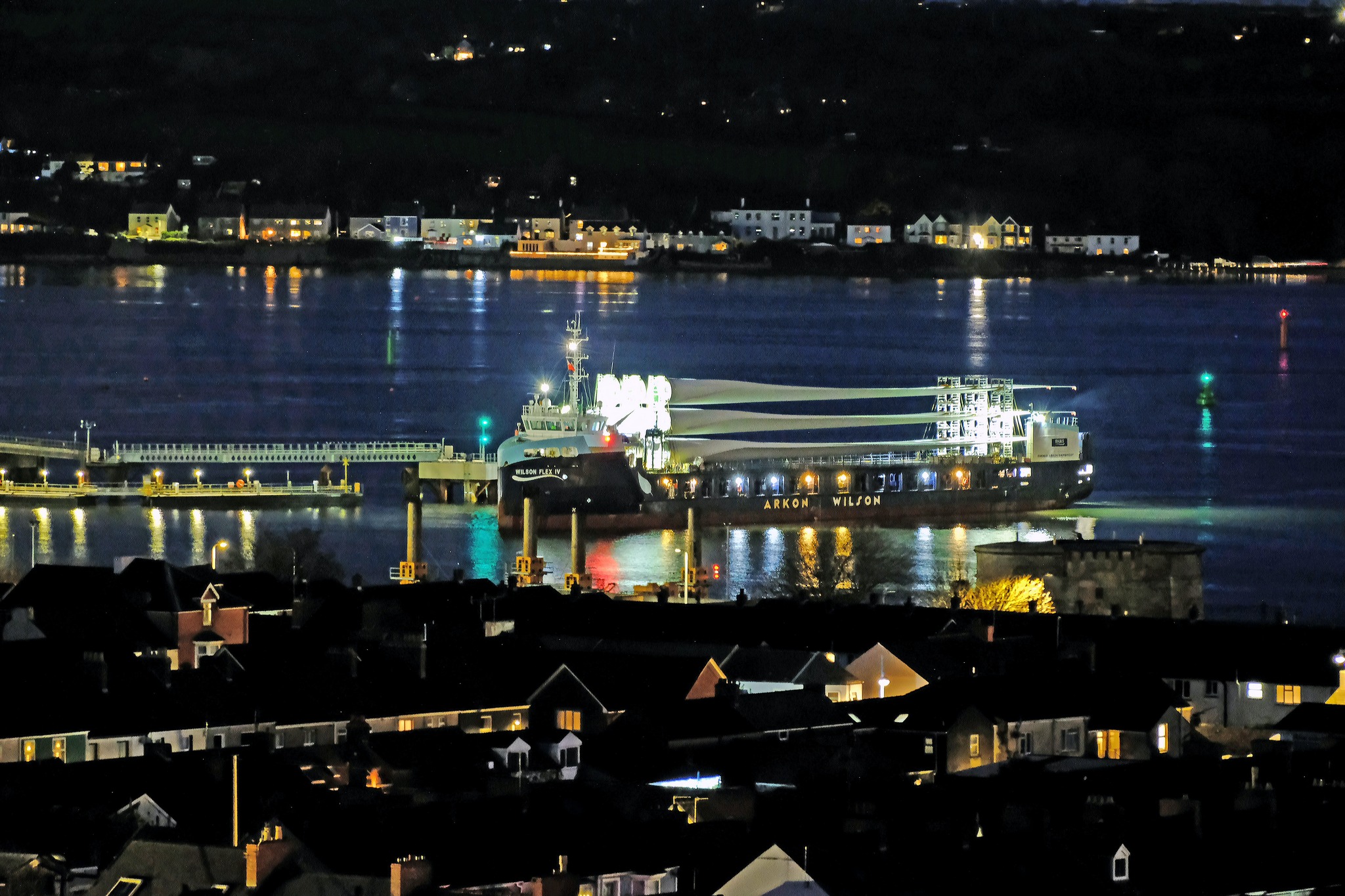
THE FIRST ship carrying major components for Dragon LNG’s new onshore wind turbines docked at Pembroke Port yesterday afternoon, marking the start of physical deliveries for the multi-million-pound renewable energy project.
The Maltese-registered general cargo vessel Peak Bergen berthed at Pembroke Dock shortly after 4pm on Wednesday, bringing tower sections and other heavy components for the three Enercon turbines that will eventually stand on land adjacent to the existing gas terminal at Waterston.
A second vessel, the Irish-flagged Wilson Flex IV, is due to arrive in the early hours of this morning (Thursday) carrying the giant rotor blades.
The deliveries follow a successful trial convoy on 25 November, when police-escorted low-loader trailers carried dummy loads along the planned route from the port through Pembroke, past Waterloo roundabout and up the A477 to the Dragon LNG site.
Dragon LNG’s Community and Social Performance Officer, Lynette Round, confirmed the latest movements in emails to the Herald.
“The Peak Bergen arrived yesterday with the first components,” she said. “We are expecting another delivery tomorrow (Thursday) onboard the Wilson Flex IV. This will be blades and is currently showing an ETA of approximately 03:30.”
The £14.3 million project, approved by Welsh Ministers last year, will see three turbines with a combined capacity of up to 13.5 MW erected on company-owned land next to the LNG terminal. Once operational – expected in late 2026 – they will generate enough electricity to power the entire site, significantly reducing its carbon footprint.
Port of Milford Haven shipping movements showed the Peak Bergen approaching the Haven throughout Wednesday morning before finally tying up at the cargo berth in Pembroke Dock. Cranes began unloading operations yesterday evening.
Weather conditions are currently favourable for this morning’s arrival of the Wilson Flex IV, which was tracking south of the Smalls at midnight.
The abnormal-load convoys carrying the components from the port to Waterston are expected to begin next week, subject to final police and highway approvals.
A community benefit fund linked to the project will provide training opportunities and energy-bill support for residents in nearby Waterston, Llanstadwell and Neyland.
Further updates will be issued by Dragon LNG as the Port of Milford Haven as the delivery programme continues.
Photo: Martin Cavaney
Crime
Banned for 40 months after driving with cocaine breakdown product in blood

A MILFORD HAVEN woman has been handed a lengthy driving ban after admitting driving with a controlled drug in her system more than ten times over the legal limit.
SENTENCED AT HAVERFORDWEST
Sally Allen, 43, of Wentworth Close, Hubberston, appeared before Haverfordwest Magistrates’ Court on Thursday (Dec 4) for sentencing, having pleaded guilty on November 25 to driving with a proportion of a specified controlled drug above the prescribed limit.
The court heard that Allen was stopped on August 25 on the Old Hakin Road at Tiers Cross while driving an Audi A3. Blood analysis showed 509µg/l of Benzoylecgonine, a breakdown product of cocaine. The legal limit is 50µg/l.
COMMUNITY ORDER AND REHABILITATION
Magistrates imposed a 40-month driving ban, backdated to her interim disqualification which began on November 25.
Allen was also handed a 12-month community order, requiring her to complete 10 days of rehabilitation activities as directed by the Probation Service.
She was fined £120, ordered to pay £85 prosecution costs and a £114 surcharge. Her financial penalties will be paid in £25 monthly instalments from January 1, 2026.
The bench—Mrs H Roberts, Mr M Shankland and Mrs J Morris—said her guilty plea had been taken into account when passing sentence.
Local Government
Sewage leak at Pembroke Commons prompts urgent clean-up works
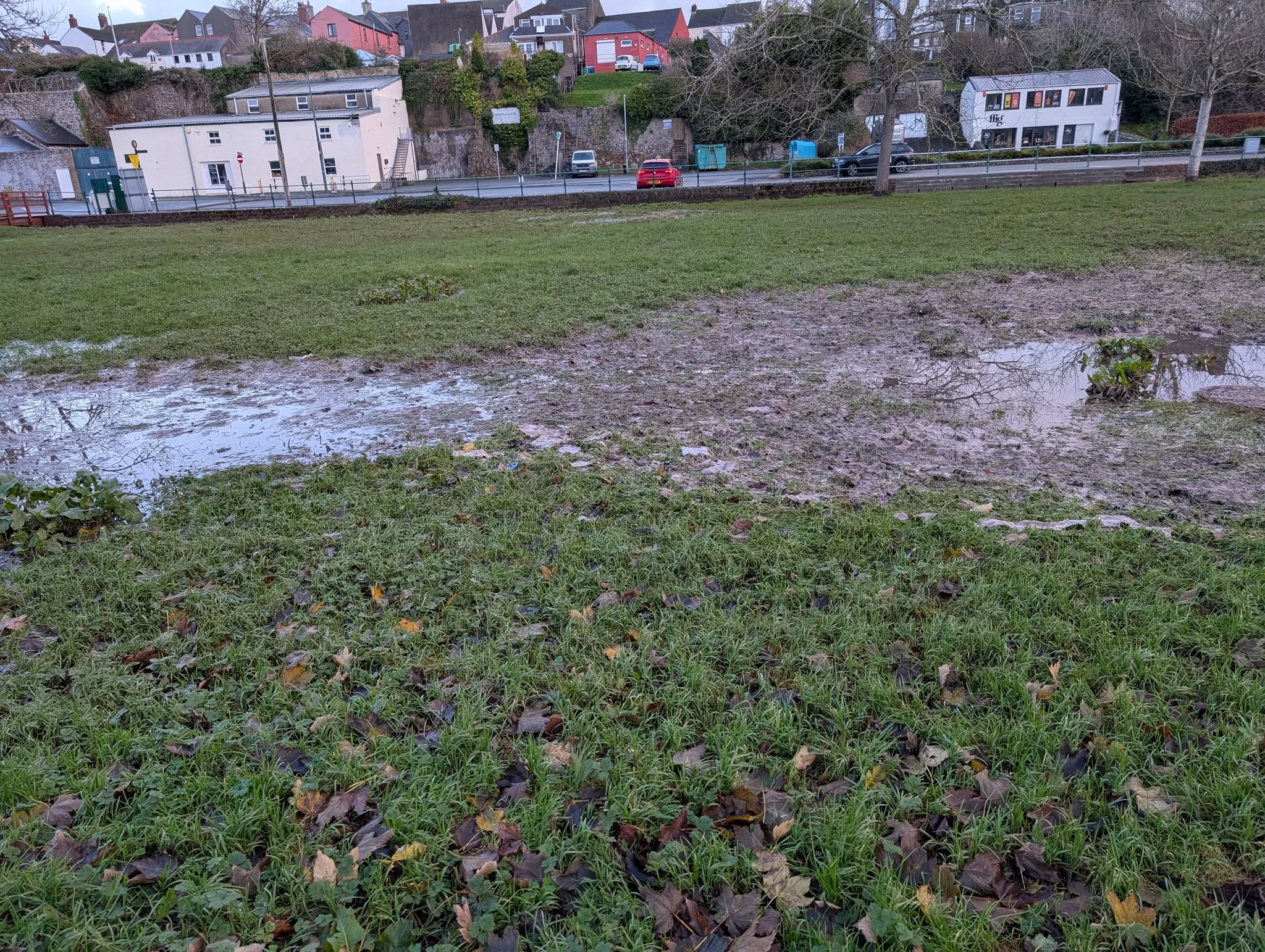
Council pollution officers say they have no enforcement powers over Welsh Water infrastructure
SEWAGE contamination on the Commons in Pembroke has prompted an urgent response from pollution officers, after a leak was reported by a member of the public on Tuesday.
Pembrokeshire County Council’s Pollution Control Team confirmed they were alerted yesterday afternoon to sewage surrounding a manhole cover on the site. The Herald understands that officers immediately notified Welsh Water (DCWW) network technicians to investigate the incident “as a matter of urgency”.
County councillor Jonathan Grimes, who represents Pembroke St Mary South and Monkton, said the authority had been clear that it holds no enforcement powers over Welsh Water assets.
“Whilst we work constructively with Welsh Water, we have no authority to intervene on their apparatus or to carry out enforcement action against them for such pollution incidents,” the Pollution Control Team said in a statement shared with the councillor.
Urgent works underway
Council officers visited the site on Wednesday morning alongside contractors and Welsh Water technicians to assess clean-up options. According to the team, works will include cleaning the contaminated ground in and around the manhole cover and fencing off the affected area “until safe”.
Cllr Grimes said officers would return to the scene on Thursday to check on progress and ensure the area is properly secured.
Residents who notice any further issues have been urged to contact the Pollution Control Team directly.
Further updates are expected later this week.
-

 Crime2 days ago
Crime2 days agoDefendant denies using Sudocrem-covered finger to assault two-month-old baby
-

 Crime6 days ago
Crime6 days agoMan denies causing baby’s injuries as police interviews read to jury
-

 Crime1 day ago
Crime1 day agoPembroke rape investigation dropped – one suspect now facing deportation
-

 News1 day ago
News1 day agoBaby C trial: Mother breaks down in tears in the witness box
-

 Crime7 days ago
Crime7 days agoMan denies injuring baby as jury hears police interview in ongoing abuse trial
-

 Crime2 days ago
Crime2 days agoLifeboat crew member forced to stand down after being assaulted at Milford pub
-

 Crime2 days ago
Crime2 days agoDefendant denies causing injuries to two-month-old baby
-
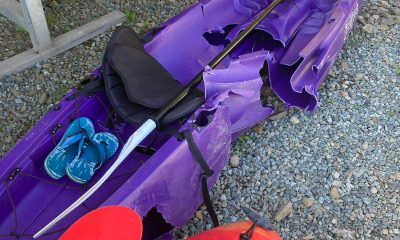
 Crime2 days ago
Crime2 days agoPembrokeshire haven master admits endangering life after speedboat collision















